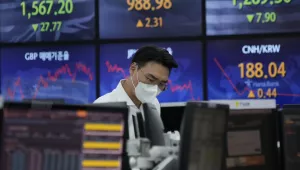As the new year starts, Politico asks a set of economists for forecasts. Prognostication from 23 appears at “Could the Economy Tank in 2016?”
By the way, I think my forecast last time, two years ago, turned out to hold up pretty well:
“Something important will get better in 2014: Fiscal policy will stop hurting the economy…The biggest impediment to economic expansion over the last three years has been destructive budget policy coming out of the Congress…There are good grounds for optimism in 2014. For the first time in four years, Congress will probably not inflict contractionary fiscal policy on the American people. If the government sector stops making a negative contribution, that will show up as economic growth.”
This time I focused on the following question from Politico:
Q: How will the 2016 presidential candidates have to adapt to economic realities and unforeseen developments in the coming year, such as the risk of recession, as they make the case to voters about their own economic visions?
A: Recessions are not forecastable. A downturn is no more likely in 2016 than in a typical year, nor less likely.
The next president will, like his or her predecessors, have to shift gears from the campaign and adjust to a very different set of developments and realities upon taking office. But this is because of politics, not mainly because of uncertainty regarding what lies ahead. The adjustment process will not begin until after the election, even if major new developments in the domestic or global economy take place during 2016. The polite way to phrase it is to observe that “politicians campaign in poetry and govern in prose.”
Republican nominees, for example, always promise to cut taxes, increase military spending, protect seniors, and yet to run a strong budget balance, even though that combination is arithmetically impossible. Democratic nominees too make unrealistic claims about how they will be able to combine spending increases with budget discipline. Unforeseen disasters – financial, economic, national security – do not cause candidates to rethink their plans, but only to double down. It is only after they take office that they are forced to confront the arithmetic, and sometimes they can postpone facing up to it for several years.
Some presidents adjust to fiscal realities immediately, during the presidential transition (Bill Clinton), some after a year or two of fiscal failure (Ronald Reagan and George H.W. Bush), and some later still (George W. Bush). But none do it before the election.
.
Frankel, Jeffrey. “Forecasting 2016 Economic Developments & Candidates’ Reactions.” January 4, 2016



